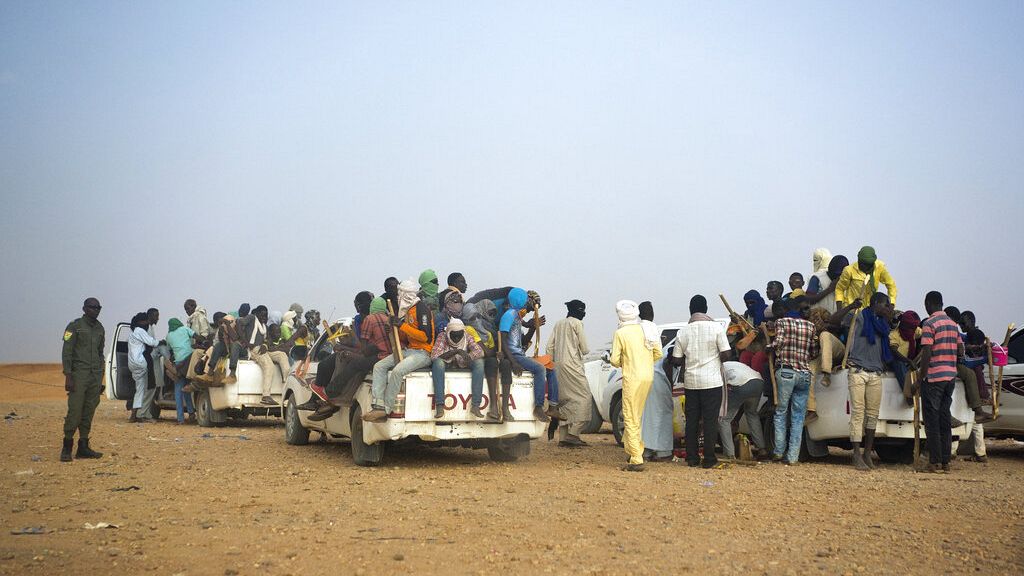The European Union's Changed Migrant Attitude
The European Commission is set to propose new rules on deporting migrants entering the bloc illegally, according to three European Union diplomats.The Commission is currently consulting EU capitals to determine the specifics of the directive, one diplomat said. Migration regulations are notoriously complex, involving overlapping national, EU and international law.A few principles are likely to feature in the new directive, including defining rights and obligations for migrants who have exhausted legal options to stay in the EU and clarifying rules for deporting them to third countries — which could either be their country of origin or a place where they have spent a significant amount of time.Since the EU adopted its Return Directive in 2008, the push for more and quicker deportations has grown. Europe has shifted markedly right on migration in recent years at both the national and EU levels, with far-right parties making major gains on an anti-immigrant platform and right-wing forces increasingly influential in Brussels.Politico
 |
| A draft directive on returns could be circulated to member countries' permanent representations as early as February. | Jussi Nukari/Lehtikuva/AFP via Getty Images |
Europe,
over the past decade, has found itself pushed too hard by swarms of
illegal migrants entering by overland routes or crowded into dinghies
through sea passages where tens of thousands of people from Africa and
the Middle East risk their lives and their futures determined to make
passage to Europe to settle in wealthy states like Germany which in the
past obligingly took in altogether a million migrants. Austria found
space for many, and the European Union at first expected its members to
accept an equal share of the never-ending streams of people -- mostly
young men -- intent on finding refuge for whatever reason -- escaping
poverty, or discrimination, or war, but not excluding others with a
nefarious purpose.
Once
the phenomenon of waves of thousands of illegal migrants risking all to
make their journey a success became a routine and Europe was groaning
at its cultural/social/empathetic seams the uniqueness of the situation
became stale and the burden of finding place for foreign nationals whose
cultures, heritage, values and tribal sectarianism grated on public
sensibilities to the point of final rejection. While Western Europe
grudgingly did its part in accepting the foreign waves of migrants,
Eastern Europe had a tendency to hunker down in rejection.
That
rejection has hardened to envelope the entire European Union. And much
as occurred when Turkey demanded funding from the EU to keep its
humanitarian haven of millions of Syrian refugees who had escaped the
brutality of the Syrian civil war, intact within its own borders rather
than maliciously aiding their sea passage to Italy's shores and then on
to the greater European target, the EU has turned to making financial
deals with African countries to avoid having to accommodate any further
non-legal entries. And from there to engage in wholesale deportations.
 |
| Nigerians and third country migrants Jerome Delay/The Associated Press |
Anti-migrant
sentiments throughout Europe have matured to the point where, from
France and Germany stretching over to Hungary, sub-Saharan Africans
intent on reaching the continent are now facing push-back. North
African governments that signed on to bilateral agreements with the E.U.
include Tunisia, Morocco, Libya and Mauritania, for whom financial
incentives have led to curbing of migrant flows. Illegal border
crossings dropped substantially in 2024.
Predictably,
rights groups deplore this new rejection of illegal migrants from
Europe, claiming methods used to ensure sub-Sahara migrants cannot
travel unopposed have led to human rights violations. Migrants are being
dumped and abandoned without food or water in the Sahara; alternately
placed in North African prisons where they face torture, sexual violence
and starvation.
Mass
deportation from Libya reflects like movements from Algeria where last
year over 31,000 people were deported to Niger. Algerian authorities
leave migrants at the border with Niger, where migrants are then left
with no option but to walk for hours through the desert before reaching
the closest town. Migrants become victim to beatings and other physical
violence in Algerian prisons. Deported migrants in Africa are returned
to their home countries by the United Nations' International
Organization for Migration.
 |
| Many migrants deported from Algeria are still stuck in Agadez, in Northern Niger. Photo : Mehdi Chebil / InfoMigrants |
Labels: African/Middle East Migrants, Europe, Illegal Migration

<< Home